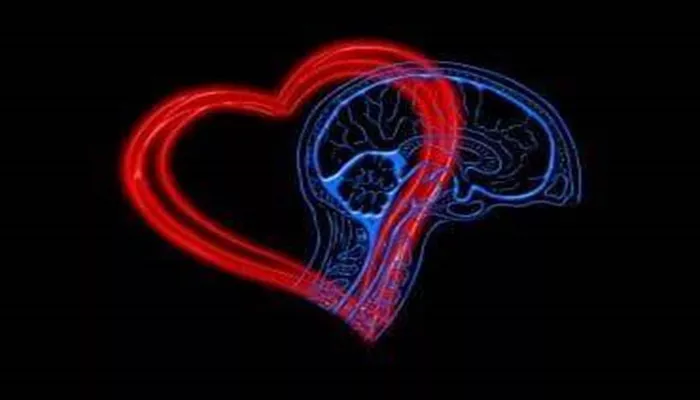Serotonin is a neurotransmitter widely known for its role in regulating mood, anxiety, and happiness. It is also involved in several physiological processes, including the modulation of heart function. This article explores the relationship between serotonin levels and heart health, examining whether excessive serotonin can lead to cardiovascular issues.
The Role of Serotonin in the Body
Serotonin, chemically known as 5-hydroxytryptamine (5-HT), is produced primarily in the brain and the gastrointestinal tract. In the central nervous system, serotonin influences mood, sleep, appetite, and memory. Peripheral serotonin, found in the intestines and platelets, contributes to regulating bowel movements and blood clotting.
Serotonin’s diverse roles are attributed to its ability to bind to various receptors throughout the body. There are at least 14 different serotonin receptors, each playing a distinct role in physiological processes. The impact of serotonin on the cardiovascular system is mediated through several mechanisms, including the modulation of blood vessel tone and heart rate.
Serotonin And Cardiovascular Function
Serotonin’s influence on cardiovascular health is multifaceted. It can affect blood vessels, heart rate, and overall cardiovascular function through several pathways:
Vascular Tone and Blood Pressure: Serotonin can cause vasoconstriction by acting on the 5-HT2 receptors located on smooth muscle cells of blood vessels. This action can increase blood pressure, which might be detrimental in individuals with pre-existing hypertension or other cardiovascular conditions.
Platelet Aggregation: Serotonin released by platelets can enhance platelet aggregation, which is crucial for blood clotting.
While this function is essential for wound healing, excessive platelet aggregation can increase the risk of thrombotic events, such as heart attacks and strokes.
Heart Rate Regulation: Serotonin influences heart rate through its action on the 5-HT3 receptors. Dysregulation of these receptors can lead to abnormal heart rhythms, potentially causing arrhythmias or other heart-related issues.
SEE ALSO: Which Arrhythmia of Are Sawtooth Flutter Waves Characteristic
Serotonin Syndrome: A Potential Risk
One of the most significant concerns related to serotonin and cardiovascular health is serotonin syndrome. This condition occurs when there is an excessive accumulation of serotonin in the brain, often due to the use of certain medications, such as selective serotonin reuptake inhibitors (SSRIs), or the combination of multiple serotonergic drugs.
Serotonin syndrome presents with a range of symptoms, including:
Neuromuscular abnormalities: Tremors, rigidity, and clonus.
Autonomic dysfunction: Hyperthermia, tachycardia, and hypertension.
Cognitive and behavioral changes: Agitation, confusion, and hallucinations.
Severe cases of serotonin syndrome can lead to cardiovascular instability, including severe hypertension, tachycardia, and arrhythmias.
These symptoms are a result of the overstimulation of serotonin receptors affecting various systems, including the cardiovascular system.
Impact of Elevated Serotonin on Heart Health
While serotonin syndrome is a critical condition to be aware of, it is important to differentiate between this acute syndrome and chronic elevation of serotonin levels. The impact of chronic elevated serotonin on heart health is less well-defined but is an area of ongoing research.
Some potential implications of chronically elevated serotonin levels include:
Increased Risk of Hypertension: Persistent activation of serotonin receptors on vascular smooth muscle can lead to sustained vasoconstriction, potentially resulting in chronic hypertension.
Risk of Thrombosis: Elevated serotonin levels can enhance platelet aggregation over time, increasing the risk of thrombotic events. This is particularly concerning in individuals with other cardiovascular risk factors.
Arrhythmias: Chronic alterations in serotonin levels may affect cardiac rhythm, potentially leading to arrhythmias. This effect could be exacerbated in individuals with pre-existing heart conditions.
Managing Serotonin Levels And Cardiovascular Risk
To mitigate the risk of cardiovascular issues associated with serotonin, several strategies can be employed:
Medication Management: Careful management of serotonergic medications is crucial. Patients should be monitored for signs of serotonin syndrome, and medication dosages should be adjusted as needed. Combining serotonergic drugs should be done with caution and under medical supervision.
Regular Monitoring: Individuals on serotonergic medications should undergo regular cardiovascular assessments, including blood pressure and heart rate monitoring, to detect any adverse effects early.
Lifestyle Modifications: Adopting a heart-healthy lifestyle, including regular exercise, a balanced diet, and stress management, can help reduce the risk of cardiovascular issues associated with elevated serotonin levels.
Conclusion
Serotonin plays a complex role in cardiovascular health. While it is essential for various physiological functions, excessive serotonin, particularly in the context of serotonin syndrome or chronic elevation, can pose risks to heart health.
Understanding these risks and managing serotonin levels through careful medication management and regular cardiovascular monitoring can help mitigate potential adverse effects.


